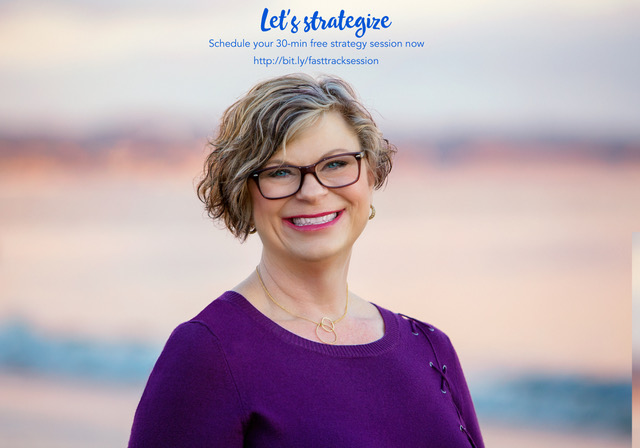
So much of what we do in business is about communicating and connecting. We’re all thumbing away at our screens to people around the world, across town, or shoot, even right next to you. If you’ve ever worked with me, you’ve probably heard me say, “Pick up the phone!” That doesn’t mean picking up the phone to text or send a video. Let me be clear on this…Pick up the phone and then make an actual call.
Emailing, texting, and recording videos are all good means of business communication, but none of those can truly duplicate a phone call or face-to-face conversation. That’s where you infer tone and messaging. It gives you the real-time advantage of asking for clarification and responding in the moment. With emails, texts, and recorded videos, you lose the chance to connect without a passive back-and-forth thread.
If an email or text is going back and forth more than two times, many successful leaders, some of the most successful people I know, will pick up the phone to have a live conversation whenever possible. This allows both parties to hear the tone of their voice and gauge what may be going on with the other person that’s not possible to pick up in a text or email.
Most importantly, it limits the possibility of your bias or lens affecting how you see the intent of the other person sending a message. I get that it’s not always possible. I totally get it. A lot of times, I’m working with people nine hours ahead of me and what I’ll do is schedule a video conference or a phone call. It allows us to take the conversation out of the passive context of a text or email and have a true conversation. Even if you can’t talk to the person right away, you can still schedule your conversation together.
So, why don’t we pick up the phone more often? It’s not convenient. It’s outside our comfort zone. Dude, here’s your reality splash for the day: your greatest leadership impact happens outside your comfort zone. I get it – life is crazy busy for so many of us! It’s much easier to ‘lob the ball’ back and forth through email where it becomes the other person’s problem. If you want to be effective, get faster results, and build greater rapport with others, focus on having real conversations, not just replies in a thread.
It shows your relationship with the other person really matters. That’s where picking up the phone gives you an advantage over your colleagues. It shows you’re willing to go above and beyond the status quo to connect with others.
It also gives you a great safety net if you’re uncertain if your message or perspective is correct. When in doubt, pick up the phone and be honest about your concerns. It can make a world of difference when you share with the other person you didn’t want any miscommunication or confusion. They can see you care about their perspective as much as your own. This is effective communication.
Making a Call Instead of Sending an Email or Text
When are the best times to make a phone call instead of sending an email? Here are seven situations where you’re better served with a phone or video call instead of sending an email or text:
1. When you’re the new person.
One of the best opportunities you have as a new person is building rapport and relationships as fast as possible. Making a phone call allows the other person to hear your voice, get to know you a bit in a real-time context, and see that you value clarity over convenience.
2. When it seems like the other person is mad at you.
Leadership is a popular place to dodge rocks thrown your way. If you receive an email or text from a colleague or direct report that seems emotionally charged, pick up the phone and ask them to share their honest thoughts with you. Whether they’re fully honest with you is up to them, but it gives you a chance to confront a potentially volatile conversation before it gains more momentum.
3. When you’re Hurt, Angry, Lonely, or Tired.
There’s a reason why I capitalized the first letter in each of these four words: Hurt, Angry, Lonely, and Tired. Those letters spell out HALT, a great action to take if you’re feeling any of these four experiences. Hurt people hurt people. We all do it, even when we don’t want to, and it’s a huge pain point for a lot of executives and business leaders. It’s lonely at the top. It’s easy to let our past or present hurt ignite a negative response in our energy and vibe to the world around us.
A good rule of thumb is to never send an email or text when you’re angry. Writing down your anger is a bad setup for others to reference and for you to dread weeks, months, or even years down the road. Count to ten and think about what’s driving your anger. There’s a good chance you’re feeling angry because there’s a gap between your expectations for that person or situation and the experience you felt instead. The greater the gap between your expectations and your experience, the stronger or bigger the anger you feel. Identify the gap, assess how much of your expectations were realistic, dismiss the expectations that weren’t realistic, and then, focus on having a constructive conversation with a phone call or in-person meeting with the other person. Remember: words have power and words in writing cannot be taken back.
When we’re tired, everything is far less responsive, including our discretion and knowledge processing abilities. Yes, you can still send an email or even make a call. If at all possible, get more rest before trying to communicate important messages.
4. When you need to share sensitive information.
I want to be clear: sensitive information doesn’t mean confidential information. It means information that may be emotionally damaging or be hazardous to healthy relationships if miscommunicated or misconstrued. Having a phone call or face-to-face conversation (preferred) gives you the context for the other person to better understand your intent. Now, this doesn’t guarantee your intent or words won’t be miscommunicated or misconstrued, but the real-time context gives you a chance to clarify or reword your message if not delivered or received as well as you’d like.
5. When you need clarification before making a significant financial decision for your company.
Asking a direct report to clarify their research is helpful before making a significant financial decision. Your team members work hard to get you accurate information. If there’s a chance of misunderstanding their data or recommendations, it’s worth a phone call just to make sure. Sending an email can also be effective, but in many situations, the speed of making a decision sooner rather than later means a phone call is the right decision. Waiting for an email reply can often mean your window of opportunity closes before you get a response. Make the call.
6. When you’re confused or uncertain what was shared.
How much time is wasted with email threads? A phone call or in-person conversation is often much faster than losing details in an email thread. If there’s any chance you’re confused or uncertain about what the other person said, pick up the phone or connect with them in person to ask for clarification.
7. When you need to make a big decision that affects a significant number of people.
This ties back into the situation about sharing sensitive information. Downsizing, reassigning, even outright firing people is not an email-only decision. Make the call to other decision-makers who can speak into the situation with wisdom and grace.
One of the best practices I recommend is blocking out time on your calendar to make calls. These can be spontaneous calls or scheduled calls with your clients, colleagues, or team members. Another helpful tool to make your life easier is to create a calendar link to include in your email signature for people to book a call with you. That creates an ‘open door’ policy to connect for a great phone or video call without relying on email or text messages.
What’s been your experience with picking up the phone instead of sending an email or text? Comment below and tell me the times when you picked up the phone and it made a big difference. When we get caught in the back-and-forth email or text exchange, what’s the trigger for you to pause and realize a phone or in-person conversation is best?
If you’re feeling misheard or lost as an executive, don’t worry – you’re not alone and we can change that experience for you. I’ve spent the past 20 years coaching Silicon Valley executives after serving as one. I can help you take great steps towards clear communication with your team, clients, and colleagues. The first step is for us to connect for a call (shocking, I know!:) so I can learn more about your work and current situation. This is a complimentary, confidential conversation where we can see what opportunities may be ahead for you. Follow the link below to book your call. Let’s talk soon!



Recent Comments